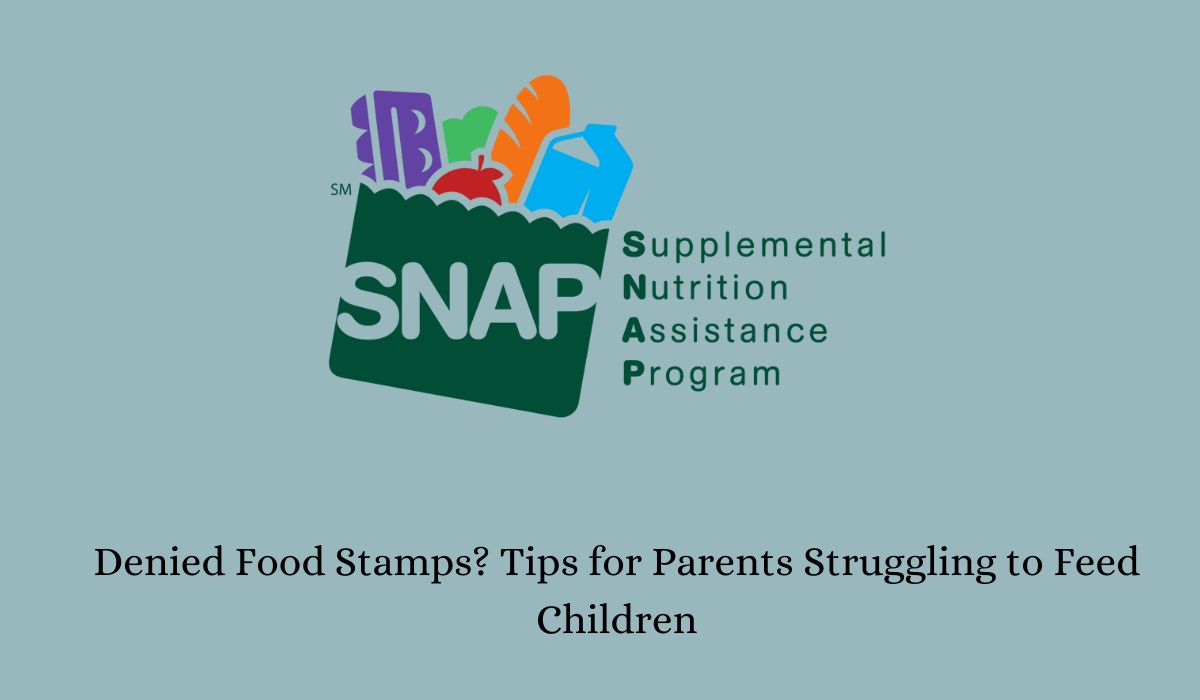I Can’t Afford To Feed My Children And I’ve Been Denied For Food Stamps. What Should I Do?
In an ideal world, no parent would ever face the heart-wrenching reality of not being able to provide food for their children. Unfortunately, this is a situation that some families find themselves in, compounded by the challenge of being denied food stamps.
If you’re in this situation, it’s important to remember that you’re not alone, and there are steps you can take to navigate through this difficult time.
Understand the Situation
Firstly, it’s important to understand why you might have been denied food stamps. Common reasons include income slightly above the threshold, incomplete application forms, or missing documentation. Sometimes, a simple error in the application process can lead to denial. It’s worth reviewing your application to ensure all information is accurate and complete.
Immediate Steps to Take
1. Reapply or Appeal the Decision
If you believe the denial was due to an error or misunderstanding, consider appealing the decision or reapplying, especially if your financial situation has changed since your last application.
2. Seek Local Food Banks and Pantries
Food banks and pantries can be lifesavers. They provide emergency food assistance with no or minimal qualifying criteria. Many communities have local food banks and organizations like Feeding America can help locate one near you.
3. Community and Religious Organizations
Local churches, mosques, synagogues, and community centers often offer food assistance or can direct you to resources in your community.
4. School Meal Programs
If you have school-aged children, inquire about free or reduced-price meal programs at their school. These programs can provide a reliable source of nutritious food for your children.
5. Online Platforms and Social Media Groups
Platforms like Nextdoor or Facebook groups can connect you with local community support, where members often share resources or even organize food drives.
Long-Term Strategies
1. Budgeting and Financial Counseling
Seeking advice from a financial counselor can help manage your finances more effectively. Some non-profit organizations offer free or low-cost financial counseling.
2. Community Programs and Workshops
Participate in community workshops that focus on budget-friendly cooking, nutrition, and even home gardening, which can be a sustainable way to supplement your food supply.
3. Government and Non-Profit Programs
Beyond food stamps, other government programs like WIC (Women, Infants, and Children) or local non-profit initiatives can offer assistance.
4. Advocacy and Policy Change
Getting involved in advocacy can not only help change your situation but also contribute to systemic change that can prevent such hardships for others in the future.
Emotional and Mental Support
Facing food insecurity can take a toll on your mental and emotional health. It’s important to seek support, whether it’s from friends, family, or professional counselors. Remember, asking for help is a sign of strength, not weakness.
Conclusion
While being unable to feed your children and being denied food stamps is an incredibly tough situation. There is always help available. Don’t be afraid to reach out and ask for assistance. Your children’s health and well-being should always come first.
Take advantage of the resources and support systems around you so that your children can have access to nutritious food during this difficult time.
